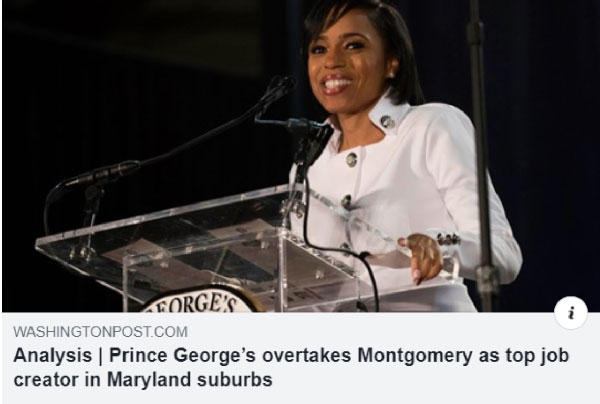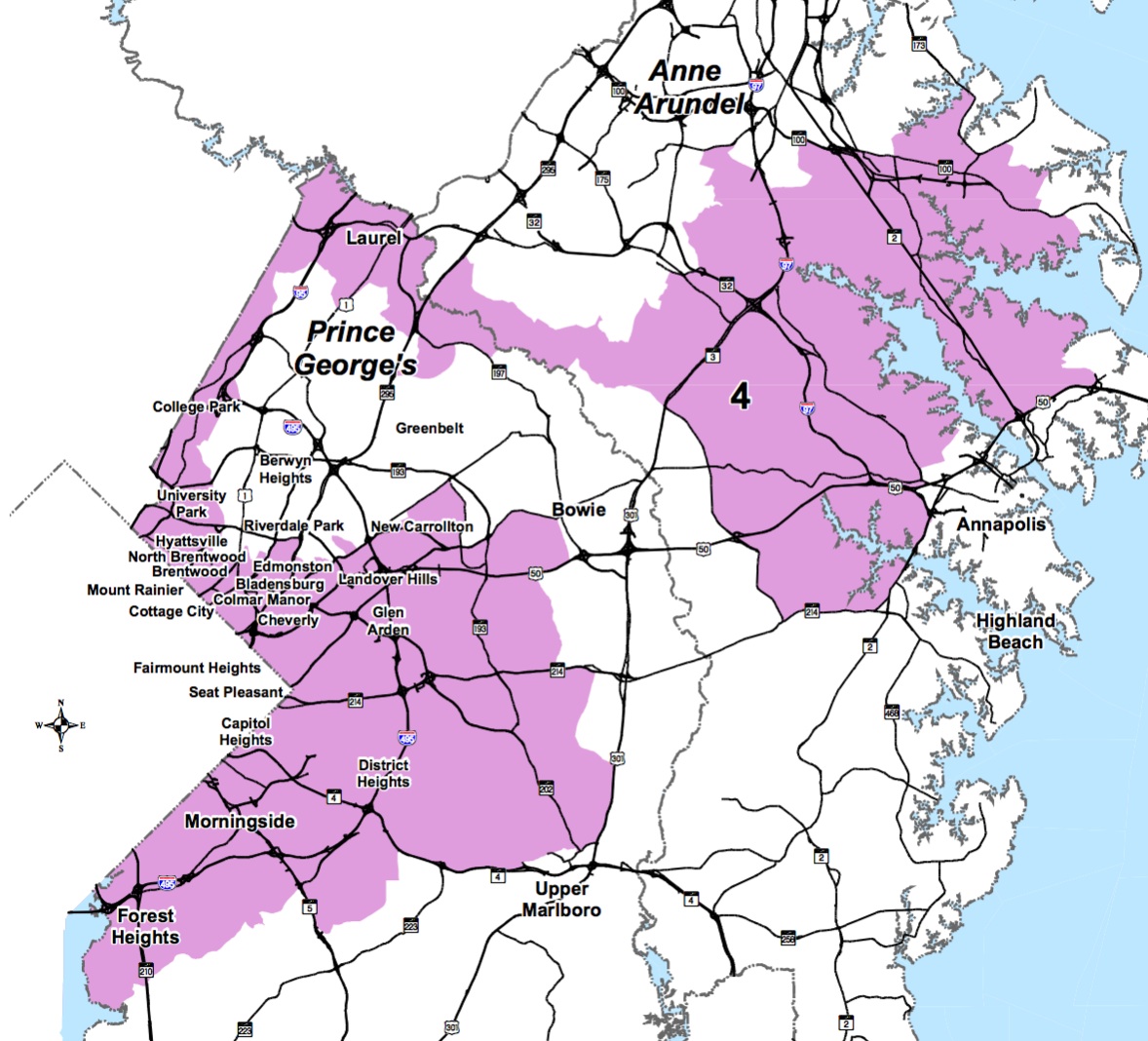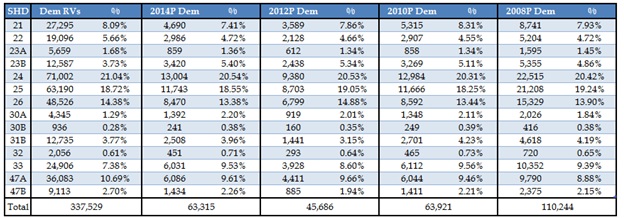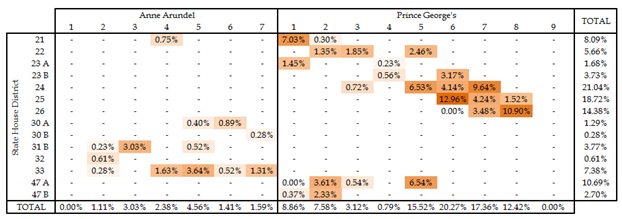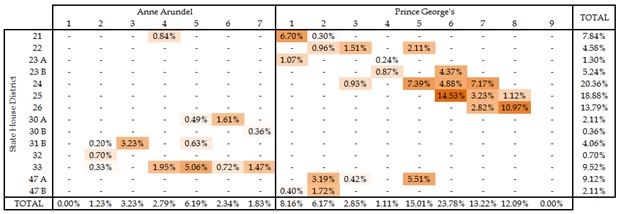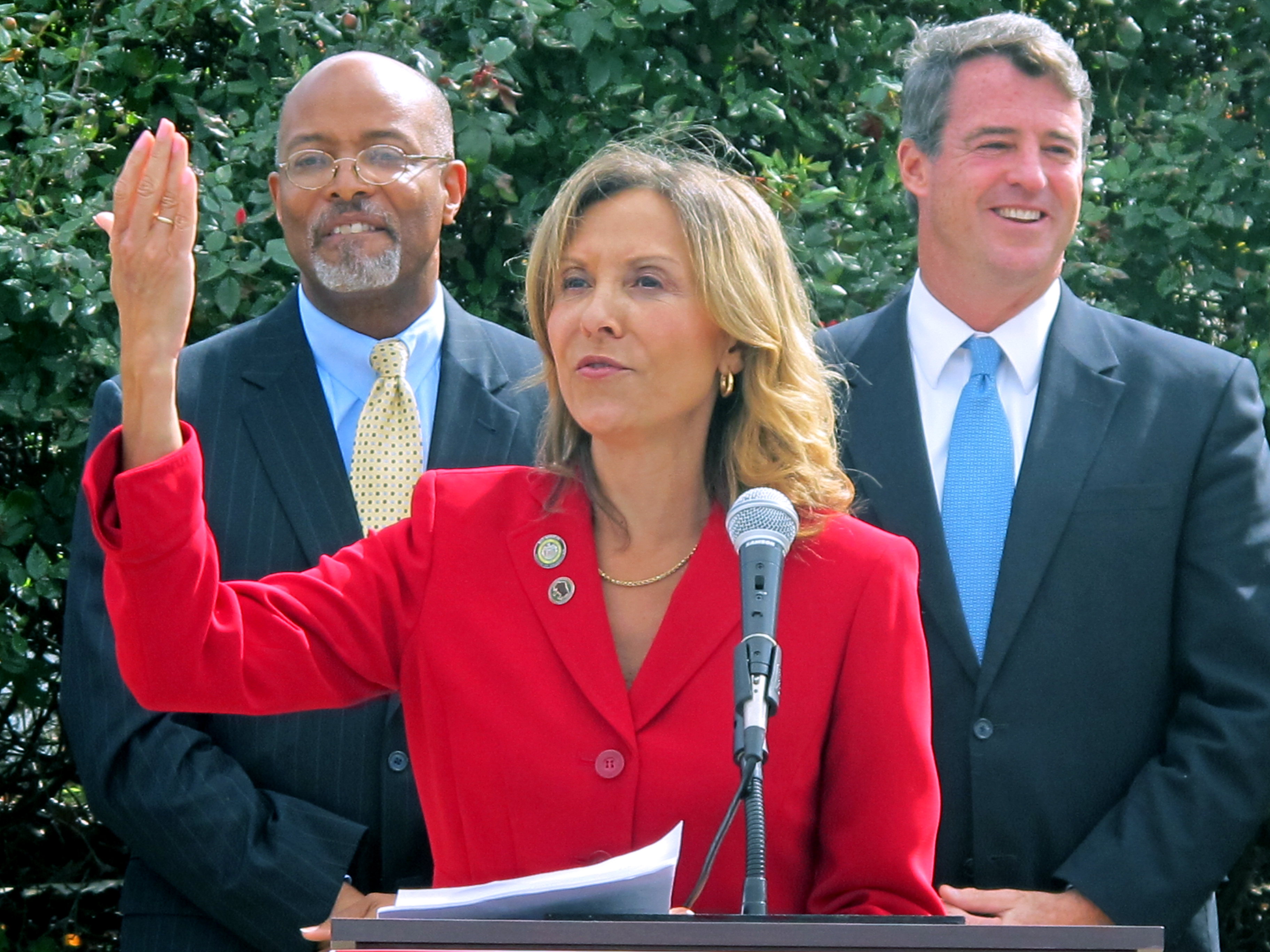By Adam Pagnucco.
Advocates of a nine-district county council in MoCo press on despite clear evidence that our at-large races have much more political competition than our district races. But there is no need to speculate about what a nine-district system would look like. For more than 30 years, a nine-district system was in use right next door to us in Prince George’s County. How did it work there?
Under Prince George’s County’s original charter in 1970, its county council had eleven members, all elected at-large. Five of them had to reside in one each of five districts while the other six could live anywhere in the county. The structure was quickly dominated by Democratic Party leaders who ran slates for state and county offices, but it began to disintegrate when non-slate members won races in 1978. In 1980, the county passed Question K, which replaced the old structure with 9 district-based council members who would be elected solely by voters in their districts. At the time, the Washington Post wrote:
With the council reduced from 11 to 9 members and its members elected from separate districts, there will be decidedly fewer countywide offices with which to form a slate. That was one goal that the amendment’s initiators — Republicans and Democrats who ran against the party slate in 1978 — intended. The supporters of K also said they designed the amendment to make the council more responsive to the electorate. Its opponents charged that the amendment will cause parochialism and an emphasis on district issues at the expense of the county.
Sound familiar?
The new structure was first used in 1982, which saw the defeat of numerous incumbents and power brokers. The system remained in place until 2016, when residents approved Question D to add 2 at-large members by a 67-33% vote. In 2018, a retiring district council member and a non-incumbent won the 2 new at-large seats, defeating seven other candidates including another retiring district council member and a former state delegate.
Another factor in Prince George’s elections are term limits, passed by voters in 1992. The county executive and county council members are limited to two consecutive four-year terms, though they can return after being out of office. Additionally, council members can serve two terms in district seats and then immediately run for two more terms in the at-large seats created in 2018. Prince George’s voters have rejected multiple attempts to repeal or extend term limits.
How well has the nine-district system promoted political competition in Prince George’s County?
The table below shows the distribution of the 60 county council elections held in Prince George’s from 1998 through 2018. Of those 60 elections, 32 were district races with an incumbent on the ballot, 22 were for open district seats, 5 were special elections for open district seats and one was an at-large election in 2018.
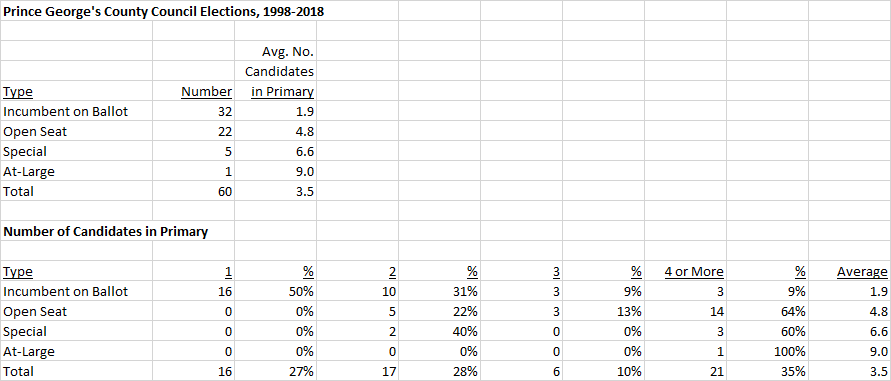
The first thing one notices is that the average number of primary candidates is much lower in races with incumbents (1.9) than in open seat district races (4.8) and special elections (6.6). The 2018 at-large race had 9 candidates.
Now let’s look at how incumbents fare in Prince George’s district races.
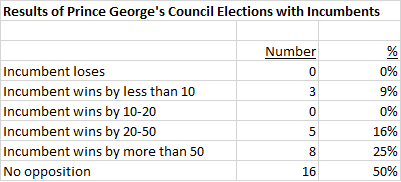
Fully half of the elections featuring an incumbent (16 of 32) had no opposition. Only 3 elections had an incumbent winning by less than 10 points. Ninety-one percent of the elections had an incumbent winning by 20 points or more or not having an opponent at all.
The combined record of incumbents running for reelection over the last two decades is 32-0.
Granted, elections work differently in Prince George’s and MoCo. Prince George’s politicians employ mixed slates of incumbent and non-incumbent state and county candidates who distribute sample ballots listing all of them. This gives incumbents, especially non-term limited state legislators, enormous influence in selecting and grooming new members of their political organizations. But the end result is not much different than in MoCo’s district council races since 1998, in which Democratic incumbents have an 18-1 record and regularly win blowouts.
The lesson from Prince George’s County is clear: in the context of all district seats, true competition usually only occurs when an incumbent does not run. Because Prince George’s limits incumbents to two consecutive four-year terms, that means true competition happens once every eight years for district seats (unless a vacancy occurs and a special election is held). In Montgomery County, which limits council members to three consecutive four-year terms, true competition would occur once every twelve years. That is a mammoth setback from MoCo’s at-large elections, which have at least some degree of competition in every primary and have sent three incumbents home.
The effect of electing nine candidates and then allowing them to face creampuff (or no) opposition for twelve years would be to create nine kings and queens. That is comparable to what happened in Prince George’s County except our monarchs would rule 50% longer. The NIMBYism and parochialism of the Prince George’s nine-district system even acquired a name – “council courtesy,” under which the other eight members nearly always accepted a member’s position on development in his or her district. With neither the county executive nor the planning board trumping the council on land use powers, the council members were unchallenged overlords inside their domains. Then-special election candidate (and future Council Member) Derrick Leon Davis explained how this works on Kojo Nnamdi’s show in 2011.
In politics, there are few things more dangerous than elected officials who face little or no competition. The risk of being hurled from office by pitchfork-wielding voters is one of the few safeguards protecting the people from politicians afflicted by greed, ego, malice, sloth or sheer incompetence. Nine-district advocates have legitimate grievances and the county could use more district council seats. But competition is a far better solution to our problems than the crowning of kings and queens.


